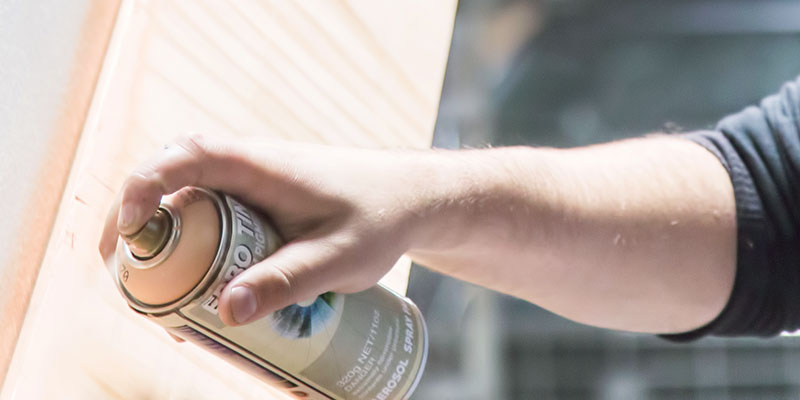Location
Our Washington Location
Our inpatient facility is located in Washington, and will serve Washington state. It will provide a safe & therapeutic environment for both our staff and patients.
- Edmonds
7416 212th St SW,
Edmonds, WA 98026
Aerosol spray abuse happens all the time in the U.S., and people do form addictions to it. Fortunately, treatment options are available to help people get off this dangerous drug.
Teenagers and older children are more likely to use aerosol sprays to get high than adults. This is mostly due to the fact that they are inexpensive and – for the most part – easily accessed. These two factors alone give the illusion that these chemicals are safe. But that could not be further from the truth.
Aerosol sprays are extremely dangerous, and more people need to be made aware of the risks involved with misusing them. We would like to inform as many people as possible about these chemicals and help them learn where to get treatment if they are addicted.

The term aerosol spray refers to a group of substances called inhalants. These chemicals are often used as drugs, and people get high on them by inhaling them. There are a number of different substances that can fall into this category, such as:
Some of the signs of aerosol spray addiction can include:
When someone is abusing an aerosol spray, they are using it to get high. These substances should only ever be used for their intended purpose, and never as mind-altering drugs. When people abuse aerosol sprays, they put themselves at risk for becoming addicted to them.
Once a person becomes addicted to aerosol spray, they cannot live their life without it. It becomes something that they think about all the time. When they are not using, they are typically planning for the next time they will.
The following are some of the more common signs of aerosol spray addiction:
Using aerosol spray results in a flood of dopamine into the brain. Dopamine is the feel-good chemical that the brain produces. It is associated with basic survival tasks, such as enjoying a delicious meal. But it also increases in the brain when a person is happy.
The brain typically controls dopamine on its own, but when a drug like aerosol spray is introduced, that changes. Over time, the drug becomes in control, and people feel like they need to use in order to feel normal again.
Using inhalants can have a profound effect on both the body and the brain. It makes sense that the longer the drug is used, the more damage it can do.
Some of the short-term effects of aerosol sprays are evident after one use, and they include:
It is nearly impossible for people who misuse inhalants to tell how much they are using. But using too much at one time can result in a loss of sensation in the body. People can also become unconscious.
The long-term effects of aerosol sprays are very concerning. They include:
People who use inhalants are very likely to become addicted to them. When attempting to stop them, they may experience withdrawal symptoms. Repeat exposure can also result in death.
Aerosol spray use results in a flood of dopamine to the brain. Dopamine is the feel-good chemical the brain produces, and it’s also associated with basic survival tasks, such as eating a great meal. It’s not surprising that aerosol spray addicts soon find that they need aerosol sprays in order to feel normal. These substances can have a serious effect on the body, both in the short and long-term.
Eventually, if you continue to use aerosol sprays, you risk dying from repeat exposure to them. It’s clear that these substances are not as harmless as they seem.
For someone who is addicted to aerosol sprays, making the decision to go to rehab is so important. They often find that it was the best possible option for them, and for good reason.
During rehab, most people with this type of addiction will not need to go through detox. If withdrawal symptoms become severe, it may be necessary for staff to intervene. There are medications that can help with various symptoms. But the primary focus will be on therapy.
Patients typically undergo several different types of therapy. These can include:
It is possible to become physically addicted to aerosol sprays, but experts believe that the psychological part of the addiction is actually much more concerning. With any addiction, withdrawal symptoms are bound to occur when the substance is stopped, and the same is true for aerosol sprays.
If you’ve been using aerosol sprays and then you stop them abruptly, you’re liable to experience:
Aerosol spray rehab programs can help you find relief from these and any other withdrawal symptoms you might experience because of using aerosol sprays. If you choose to try to stop using them on your own, you’re likely to relapse, which can be very dangerous.
You may be wondering what types of aerosol spray rehab facilities are recommended for someone with your type of addiction. Inpatient aerosol spray rehab is the best way to recover from an aerosol spray addiction, and there are some really good reasons for that. They include:
If you’re addicted to aerosol sprays, an inpatient setting is highly recommended because it’s very easy to relapse, and doing so can lead to overdose and even death.
VERIFY YOUR INSURANCEAt Northpoint Washington, our drug treatment program is considered one of the best in the State of Washington. We are located in the City of Edmonds, and we offer both detox and rehab services at our facility.
Every patient deserves a personalized approach to addiction recovery. That is why we ensure that our patients each receive their own detailed and targeted treatment plans. We tailor their rehab experience to their needs, which has helped us improve our long-term outcomes.
As we mentioned earlier, detox may not be part of the treatment plan for aerosol spray addiction. In that case, the patient will spend 28 days in rehab. Afterwards, they will be given a recommendation for the appropriate type of aftercare. Following up with aftercare appointments is critical, and it is often what makes the difference between relapsing and recovery.
A co-occurring disorder is a mental health condition that often accompanies addictions. Many of our patients who are addicted to aerosol sprays also have co-occurring disorders. They could be suffering from any number of conditions, including:
Dual diagnosis treatment is what we offer at Northpoint Washington. This allows us to treat the addiction and the mental health condition at the same time. This method is becoming widely adopted because it produces a better chance for a positive outcome long-term.

At Northpoint Washington, we are well-aware of how dangerous aerosol sprays are. We also know how hard it is to ask for help once a person becomes addicted to them. But we want you to know that we are here to help, not pass judgment.

Our admissions coordinators are here to help you get started with treatment the right way. They'll verify your health insurance, help set up travel arrangements, and make sure your transition into treatment is smooth and hassle-free.
[DirectNumber] Contact Us